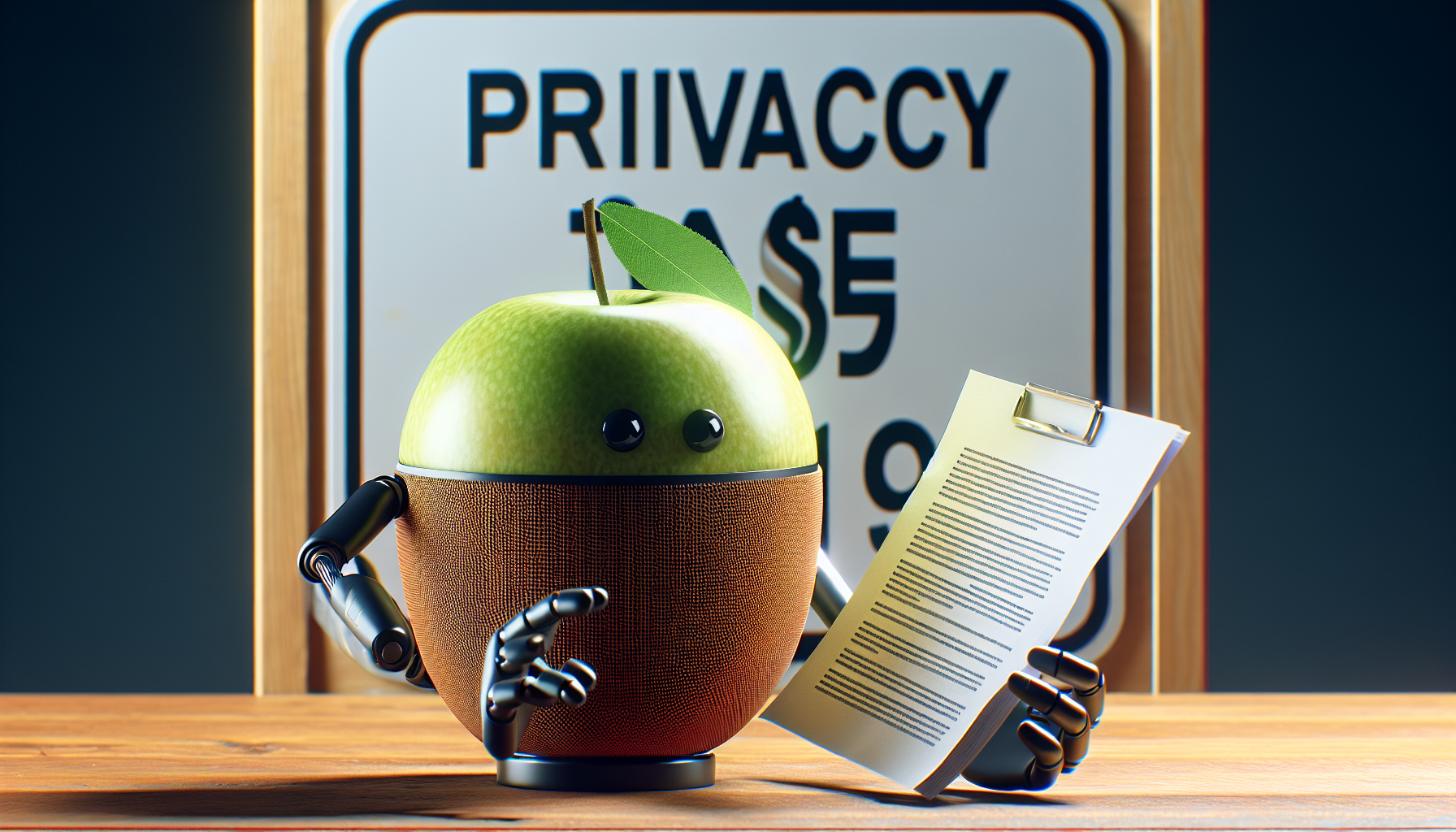
Apple Resolves Siri Privacy Lawsuit: Key Information
Apple has consented to resolve a years-long class-action lawsuit surrounding privacy issues associated with its Siri voice assistant. The settlement, totaling $95 million, addresses claims that Siri unintentionally recorded private user data. Although Apple refutes any infringement, the case has sparked renewed discussions about privacy in the era of voice technology. Below is a summary of the lawsuit, Apple’s reaction, and its implications for Siri users.
The Beginning of the Siri Privacy Lawsuit
How It Started
The lawsuit originated from a report in 2019 that disclosed Apple contractors were reviewing Siri recordings as part of a quality assurance initiative. These recordings, unintentionally initiated by the “Hey Siri” command, allegedly contained sensitive information like medical records, criminal activities, and personal conversations.
Two plaintiffs argued that conversations about particular products, such as Nike Air Jordans and Olive Garden, resulted in targeted advertisements for those products. Another plaintiff stated that discussing a surgical procedure with his physician led to advertisements related to that treatment.
Apple’s Early Reaction
Following the backlash, Apple halted the program in 2019 and launched an internal investigation. The company recognized that it had not completely upheld its privacy commitments and made substantial revisions to its Siri data evaluation procedures.
Apple’s Privacy Safeguards for Siri
On-Device Processing
Apple has consistently highlighted its dedication to user privacy. Current Siri-enabled devices with the A12 Bionic chip or newer process audio entirely on the device. This ensures that most Siri exchanges are contained within your device, lowering the chances of data breaches.
Opt-In Data Sharing
In response to the 2019 findings, Apple implemented an opt-in policy for sharing Siri recordings. Users must provide explicit consent to share their data for enhancing Siri functionalities. If you’re uncertain about your preferences, you can verify them by going to Settings > Privacy & Security > Analytics & Improvements > Improve Siri & Dictation on your device.
Data Anonymization
Apple also anonymizes Siri data by associating it with a random identifier rather than linking it to your Apple account. This guarantees that even when recordings are analyzed, they cannot be traced back to specific users.
The Settlement: Implications for Siri Users
Settlement Details
The $95 million settlement encompasses Siri-enabled devices acquired from September 17, 2014, to December 31, 2024. Upon approval by US District Judge Jeffrey White, qualifying users may receive up to $20 per device. However, users are required to opt into the class-action lawsuit to claim their allocation.
Reasons for Apple’s Settlement
Apple asserts that it has never utilized Siri data to form marketing profiles or sell information to external parties. The company indicated that it settled the lawsuit to prevent prolonged legal battles and to concentrate on enhancing Siri’s privacy measures.
Enhancements Apple Has Made to Siri Since 2019
Tighter Review Protocols
Apple has now restricted Siri data reviews to its own staff, eliminating third-party contractors. These employees operate under stringent confidentiality agreements and access data within secure environments.
User Control
Apple empowers users to control their Siri data. You can inspect and delete stored transcripts directly from your device. If you don’t notice this option, it probably indicates that you haven’t opted in for data sharing.
The Larger Context: Privacy in Voice Assistants
The Siri lawsuit points to broader issues regarding privacy in voice-activated technologies. Whether using wireless earbuds, Bluetooth speakers, or other intelligent devices, it’s essential to comprehend how your data is utilized.
Apple’s experience serves as a reminder that even organizations with strong privacy reputations can face scrutiny. For consumers, being informed and leveraging privacy settings can help safeguard personal information.
Conclusion
Apple’s $95 million settlement associated with Siri privacy issues highlights the significance of transparency and accountability in the tech sector. While Apple has implemented crucial measures to address these concerns, the situation serves as a prompt for users to stay vigilant about their data privacy. By understanding the workings of voice assistants like Siri and utilizing available privacy features, you can better manage your digital footprint.
Frequently Asked Questions
1. How can I determine if I’m qualified for the Siri settlement?
If you owned a Siri-enabled device between September 17, 2014, and December 31, 2024, you may qualify. Information on how to join the class-action lawsuit will probably be disclosed after the settlement obtains approval.
2. How can I verify if I’ve opted in to Siri data sharing?
Navigate to Settings > Privacy & Security > Analytics & Improvements > Improve Siri & Dictation on your device. If the option isn’t present, you haven’t opted in.
3. Does Apple share Siri data with advertisers?
No, Apple has declared that Siri data is never used to create marketing profiles nor is it sold to third parties.
4. How does Apple anonymize Siri data?
Siri data is tied to a random identifier instead of your Apple account, guaranteeing that recordings can’t be traced back to you.
5. What modifications did Apple implement following the 2019 controversy?
Apple discontinued its quality control initiative, dismissed third-party contractors, and introduced stricter review procedures. The company also initiated an opt-in policy for data sharing.
6. Are other voice assistants as private as Siri?
While Apple promotes privacy, other voice assistants like Google Assistant and Amazon Alexa have encountered similar issues. It’s vital to examine the privacy policies of any voice assistant you utilize.
7. Can I erase my Siri data?
Yes, you have the option to review and delete saved Siri transcripts from your device. Navigate to the same settings menu where you adjust your data-sharing preferences.
By remaining informed and proactive, you can enjoy the convenience of voice assistants without jeopardizing your privacy.